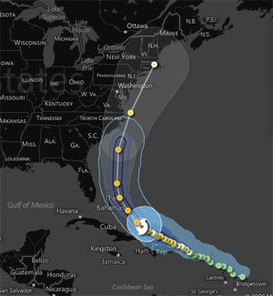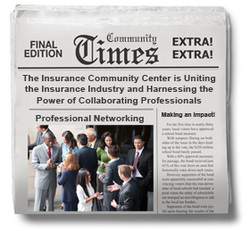 Published: Monday, 2 Dec 2013 | 10:09 AM ET By: Andrew Osterland, Special to CNBC.com All three financial advisors interviewed say the wild card—and potential budget killer—is health care. According to Ward, a couple over age 65 can expect to spend $600 per month each between contributions to Medicare, any Medicare supplemental plan and out-of-pocket medical costs. "It's the biggest expense for retirees," he said. If a health crisis necessitates long-term care, the expenses can be crippling. Long-term care insurance costs approximately $200 per month per person; people should determine whether they want coverage now or will pay for potential costs out of their own pockets should the time come. Wealthy, poor and single people may choose the latter option, but insurance is probably a good idea for the bulk of middle-class married couples. "We generally recommend long-term care insurance for most people," Edelman said. "It's usually health care that causes a crisis for people in retirement." —By Andrew Osterland, Special to CNBC.com
0 Comments
 There are so many things that should be considered before you purchased insurance. For example; you already know that every community has building ordinances or zoning laws that affect how houses are built or updated. But did you know that there are also laws and ordinances that govern how or whether a house can be repaired after a loss? When you have a loss that damages part of your house, the repairs, in many situations, must be made to the specifications of any regulations that are in effect at the time of the loss. It doesn’t really matter if everything met code when your house was built. What matters now is the new building code. Even more important than that, there are regulations that may compel you to tear down the house if the damage is more than 40–50 percent of its value. You’re probably thinking: “So how does that affect me? Isn’t that what insurance pays for?" Well…the answer is yes and no at the same time! Insurance pays for the cost to repair or replace the damaged part of the building. Think of it this way: if the value of your house is $200,000 and you have $100,000 in damage, insurance pays for the damage (minus your deductible, of course). But now that your house has sustained damage equal to 50 percent of its value, the law kicks in and requires you to tear it down—damaged and undamaged parts—and rebuild the whole thing! Now, since insurance pays for the damaged part of the building, but even the undamaged part has to be torn down, where does the other $100,000 come from? Well, that’s where Ordinance or Law coverage comes in. There are very few total losses; partial losses are far more likely. But a partial loss could trigger the enforcement of an ordinance or law that could cause you to have to pay more than the amount of loss covered by your policy. Additional coverage may be purchased that would help pay for the value of the undamaged part of the house and the increased cost to rebuild according to the new code. Replacement value doesn’t mean upgrade cost what if this happened to you…A fire causes major destruction to your building. Because more than 50% was damaged, a local by-law requires the building to be torn down and rebuilt to current building codes. You’re a responsible person and take the necessary steps to maintain your property. You have replacement cost value on your policy, so you’d be fully covered…right? Not necessarily. Property insurance policies generally have an “Ordinance or Law” exclusion, which means that the policy covers the building as it exists, but it does not cover the cost to upgrade the building to current building codes and ordinances after a loss. Therefore, having “replacement cost” coverage for your building does not mean that you have “upgrade cost” coverage, unless you purchase an “Ordinance or Law endorsement” for your property. Even if a property policy offers some built-in Ordinance or Law protection, often the amount of coverage isn’t sufficient in a major loss. Building codes and zoning laws affect every piece of property no matter how big or small. These laws are continually changing…requiring new or improved features such as better wiring, handicap access, sprinkler systems and more. If a loss situation triggers code upgrades, it could be financially devastating unless you have Ordinance or Law coverage. While some regard this coverage to be important only for older buildings, laws are always changing, and newer buildings can be affected. This is an area of concern for all building owners. How ordinance and law coverage protects you:
 As hurricane season approaches we want to remind you that hurricane preparedness is of the utmost importance. Hurricane Sandy, the second costliest storm in U.S. history causing an estimated $50 billion in damage certainly show how devastating a storm can be and reminds us that we should not be complacent, but be prepared for severe weather events. We urge you to take the time to put together your personal hurricane kit to protect your family and property in the event that a storm impacts us this year. In addition to preparing for the safety of your family, it is a good time to review your homeowners policy with us to make absolutely certain that you have the coverages you need to protect your property. Replacement Cost - the differences between the replacement cost of your home and its market value in today's economy is a prevalent topic of discussion. With today's depressed market values, it i even more important that your Homeowners Coverage A limit is insured for 100% of the replacement value of your home. Deductibles - your homeowners policy has two deductibles, one for 'all other perils' (AP) and one for 'hurricanes' or it may be for all 'wind damage.' Your MPIUA policy will have a higher deductible for any 'wind' damage. But your UPC Insurance policy would have a 'Hurricane' deductible that applies only during a 'named hurricane.' Otherwise, your lower 'all other perils' deductible would be applied. Flood - we want to remind your that your homeowner's policy does not cover flood. Should a storm occur and your property becomes flooded, in order for you to have coverage you must have a separate flood policy.  The risk of catastrophic loss during hurricane season requires an innovative approach to property coverage—and a rapid response when losses occur. For over 40 years, Lexington Insurance Company has helped our brokers and clients prepare for, protect against, and recover from catastrophic losses. We are the leading U.S.-based surplus lines insurer, and a property and casualty market leader. Make sure you’re a step ahead of risk this hurricane season. Watch LexTV for the latest on hurricane risk and coverage solutions. Hurricane 2012 Update Dr. Phil Klotzbach updates his 2012 seasonal hurricane forecast and shares his outlook for the remainder of the season. This episode also introduces Lexington's new Hurricane Infographic which will help streamline the understanding of a hurricane event. Policy Holders
Find The Answers You Need For Customer Service questions, please call: 800-295-8016 For payment information for all other policies including flood: click here. To make a one-time electronic payment or enroll in recurring electronic payment processing for your Homeowners or Dwelling Fire policy: click here. Before you begin, please be sure to have your policy invoice available. How UPC Insurance Can Help As your ONE source of protection that bridges the gap between success and security, UPC Insurance offers a selection of customizable products designed to protect both your property and your assets. The list below is merely an outline of our basic products, but with the assistance of your trained neighborhood independent agent for UPC Insurance, you will find the right product and the right options to meet your unique protection needs. • Homeowner Coverage
Responsive, Stable and Innovative In good times and bad, you can count on UPC's network of professional agents to deliver excellent service and stay in touch with your needs by recommending the right protection for you and your family.  Something to share; the National & State Do Not Call List: 888-383-1222 National Do Not Call List 866-231-2255 State Do Not Call List 888-567-8688 Credit Card Do Not Call List Just call to get on the listing. WHAT YOU SHOULD KNOW ABOUT THE NATIONAL DO NOT CALL REGISTRY The National Do Not Call Registry gives you a choice about whether to receive telemarketing calls at home. Most telemarketers should not call your number once it has been on the registry for 31 days. If they do, you can file a complaint at this Website. You can register your home or mobile phone for free. Register Now Join linkedFA Please join linkedFA at the Business Development Institute's
Your invited to BDI's Financial Services Social Communications Case Studies and Roundtables The City University of NY, Nov. 18, 2010 We will explore how leading financial institutions are embracing social media and marketing to achieve business goals despite the regulated environment. BDI has produced two Financial Services Social Communications Leadership Forums over the past year at New York University in partnership with The Wall Street Journal. Speakers from Alliance Bernstein, Citibank, Covestor, Deutsche Bank, The Wall Street Journal, T. Rowe Price, HSBC, FaceTime Communications, LightSpeed Financial, and The New York Stock Exchange participated and over 150 senior marketing, communications and compliance professionals attended. This event will be even larger with over 300 senior marketing and communications leaders from major financial services brands. Register Now More Information |
better Insurance
|
-
HOME
- Send me a Home Insurance Quote >
- FLOOD Insurance, Massachusetts >
- Cape Cod Home Insurance
- Pay Your Home Insurance Bill Online
- Ordinance or Law Coverage
- How to Prevent a Claim on your Home Insurance Policy
- Videos - Cape Cod Real Estate Tips >
- Cape Cod Massachusetts Arbella Insurance Discounts
- Cape Cod Massachusetts Lloyds of London Home Insurance
- Safety Insurance Discounts for Cape Cod, Massachusetts
- MPIUA - MA Property Insurance Underwriting Association "Fair Plan"
- Cape Cod Massachusetts Home Protection Insurance
- Hurricane Preparedness >
-
AUTO
- Send me an Auto Insurance Quote for Cape Cod, Massachusetts
- BOAT Insurance >
- Cape Cod, MA Dept. of Motor Vehicles
- Cape Cod Massachusetts - Report an Auto Insurance Claim
- Auto Insurance Quote - CAR BUYING TIPS : Auto Insurance for Cape Cod, MA
- InControl Driver Training
- Car Insurance for Cape Cod Massachusetts - Arbella Insurance - Send me an Auto Quote >
- Plymouth Rock - Send me an Auto Quote >
- Encompass Insurance Discounts
- Safety Insurance - Send me an Auto Quote >
- Travelers Insurance Discounts
- Progressive Insurance - Send me an Auto Quote
- LIFE
- OFFICES
- ABOUT US
- Stay Home
- Home Insurance Explained
- Agent Login
- Privacy Policy
- Videos - Cape Cod Real Estate Investing, Taxes & Insurance
- Videos - Cape Cod Coastal Real Estate
- Português
Arthur D. Calfee Insurance Agency, Inc. is a friendly local insurance agency proudly offering Massachusetts, Cape Cod and the Islands. A-Excellent AM Best rating, A+ Excellent by the BBB
Using innovative thinking, cutting-edge tools and expert resources at national and local levels, we deliver the best possible outcome on every policy we manage. Need Home Insurance? Easy, Fast, & Secure Home Insurance. Get Free Quotes 100% Online Now! Available 24/7. Affordable Rates. Cover Your Biggest Investments. Get a homeowners insurance quote, find coverage options. We'll help you understand and customize the right home insurance coverage for you.
Home is where your heart is—along with a healthy chunk of your net worth. Get started today with a free homeowner's quote.
Compare home insurance quotes today and save on protection for your biggest investment. Build a Custom Policy & Make the Switch! Our local underwriting professionals focus exclusively on finding the best home insurance, homeowner's insurance, hazard insurance, investment property insurance, flood insurance, flood zone information, vacation home insurance, second home insurance, auto insurance, collector car insurance, business insurance, general liability insurance, property insurance, professional liability insurance, contractor's liability insurance, worker's comp insurance, key man insurance, whole life insurance, term life insurance, group or personal disability, & long-term care insurance policies to patrons in the following Cape Cod, Massachusetts towns, communities and villages: Barnstable, Bourne, Pocasset, Brewster, Buzzards Bay, Centerville, Chatham, Cotuit, Craigville, Dennis, East Dennis, Eastham, Falmouth, East Falmouth, Hatchville, West Falmouth, North Falmouth, Woods Hole, Harwich, Hyannis, Hyannisport, Martha's Vineyard, Nantucket, Marstons Mills, Mashpee, Orleans, Osterville, Provincetown, Sandwich, Sagamore, Sagamore Beach, Truro, Wellfleet, Yarmouth, and Yarmouthport. Real-Time Pricing. Insurance coverage: Wind Damage, Fire Loss, Water Damage. Protect your home and belongings. Low Rates For Your Best Options to Save Money On Great Coverage! Get a quote today. Home insurance helps protect your house and your family.
Using innovative thinking, cutting-edge tools and expert resources at national and local levels, we deliver the best possible outcome on every policy we manage. Need Home Insurance? Easy, Fast, & Secure Home Insurance. Get Free Quotes 100% Online Now! Available 24/7. Affordable Rates. Cover Your Biggest Investments. Get a homeowners insurance quote, find coverage options. We'll help you understand and customize the right home insurance coverage for you.
Home is where your heart is—along with a healthy chunk of your net worth. Get started today with a free homeowner's quote.
Compare home insurance quotes today and save on protection for your biggest investment. Build a Custom Policy & Make the Switch! Our local underwriting professionals focus exclusively on finding the best home insurance, homeowner's insurance, hazard insurance, investment property insurance, flood insurance, flood zone information, vacation home insurance, second home insurance, auto insurance, collector car insurance, business insurance, general liability insurance, property insurance, professional liability insurance, contractor's liability insurance, worker's comp insurance, key man insurance, whole life insurance, term life insurance, group or personal disability, & long-term care insurance policies to patrons in the following Cape Cod, Massachusetts towns, communities and villages: Barnstable, Bourne, Pocasset, Brewster, Buzzards Bay, Centerville, Chatham, Cotuit, Craigville, Dennis, East Dennis, Eastham, Falmouth, East Falmouth, Hatchville, West Falmouth, North Falmouth, Woods Hole, Harwich, Hyannis, Hyannisport, Martha's Vineyard, Nantucket, Marstons Mills, Mashpee, Orleans, Osterville, Provincetown, Sandwich, Sagamore, Sagamore Beach, Truro, Wellfleet, Yarmouth, and Yarmouthport. Real-Time Pricing. Insurance coverage: Wind Damage, Fire Loss, Water Damage. Protect your home and belongings. Low Rates For Your Best Options to Save Money On Great Coverage! Get a quote today. Home insurance helps protect your house and your family.
Testimonials & Endorsements for the Best Insurance Agent on Cape Cod, MA
PHONE: (800) 479-2601 CUSTOMER SUPPORT & SERVICE
Please note: The above is meant as general information to help you understand the different aspects of insurance. This information is not an insurance policy, does not refer to any specific insurance policy, and does not modify any provisions, limitations, or exclusions expressly stated in any insurance policy. Descriptions of all coverages and other features on this page are necessarily brief; in order to fully understand the coverages and other features of a specific insurance policy, we encourage you to read the applicable policy and/or speak to an insurance representative. Coverages and other features vary between insurers, vary by state, and are not available in all states. Whether an accident or other loss is covered is subject to the terms and conditions of the actual insurance policy or policies involved in the claim. References to average or typical premiums, amounts of losses, deductibles, costs of coverages/repair, etc., are illustrative and may not apply to your situation. We are not responsible for the content of any third-party sites linked from this page.
© 2024 Copyright, Arthur D. Calfee Insurance Agency, Inc.
Calfee Cares.® Privacy Policy
Calfee Cares.® Privacy Policy







 RSS Feed
RSS Feed











